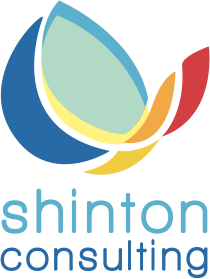The life of a 21st century academic is demanding, drawing upon a broad range of skills and needing insights into many different agendas. In this section,
- we’ll highlight the resources that we use regularly
- share the key insights from our workshops
- aim to address emerging issues as we encounter them in our work.
One of my favourite books about academic careers (the excellent “How to Succeed as a Scientist” by Barbara Gabrys and Jane Langdale) begins with a chapter on time management, which seems a fine place to start our map of academic career skills.
Time Management – our guide to improving time management is based on the workshops we run. In these we’ve noticed that the factors which affect time management are not simply about personal habits, but often involve difficulties because of workload and expectations of others. We try to address this in the guide, alongside traditional time management advice. We’ve also put together an academics’ guide to time management based on the workshops we run.
Boosting the impact of publications Publications are perhaps the most important currency of academic success (along with money). In this guide we share the advice we give during workshops on how to develop a more engaged audience for your published work and how to use publications as the basis of stronger networks and to build reputation.
Building a Research Profile – our guide to developing a stronger research profile. This is based on a workshop we ran with Edinburgh Research and Innovation and complements their advice on securing funding. The guide also stands alone to help you think strategically about your research outputs, plans and reputation.
Impact – Sara and Dr Rob Daley of Heriot-Watt University have written a chapter for the new book “Achieving Impact In Research“, part of the SAGE Success in Research series. Our chapter is entitled “How Can Impact be Planned into Research proposals” and will be out in 2013. Once the book is published, a blog post summarising the chapter and key resources to help you develop your impact strategy will be added.
Collaboration – Sara put together the team that developed the setting up a researcher blog programme for Vitae. The course handbook was written (with Janet Wilkinson) as a stand alone resource, but sadly isn’t available, so I’m gradually building up resources on the theme of collaboration for this site. The collaboration page links to the external resources we use in our workshops and the “Confusion in Collaboration” page sets out some questions which might help to minimise problems.
Fellowships – the Glasgow Guide to Fellowships was written by us for the University of Glasgow, but is freely available and contains advice relevant to anyone planning to apply for prestigious research fellowships. The guide will help you to
- locate and target appropriate fellowship opportunities
- create well-written fellowship applications
- understand how best to prepare and sell yourself at interview
Social Media – in addition to the blog post on social media, we’re working on a social media guide based on our workshops on this topic. Until that happens, read Professor Alex Marsh’s thoughts – One Academic Online. This includes his reflections on twitter and blogging (which are far more eloquent and considered than anything I’ll put together anyway).
Resilience – I’m in the process of writing this into a book chapter. In the meantime, the Five Steps to Mental Health guide from SAMH is full of great advice and here are some thoughts from academics about how they manage the flow of good and bad stuff in their work.
